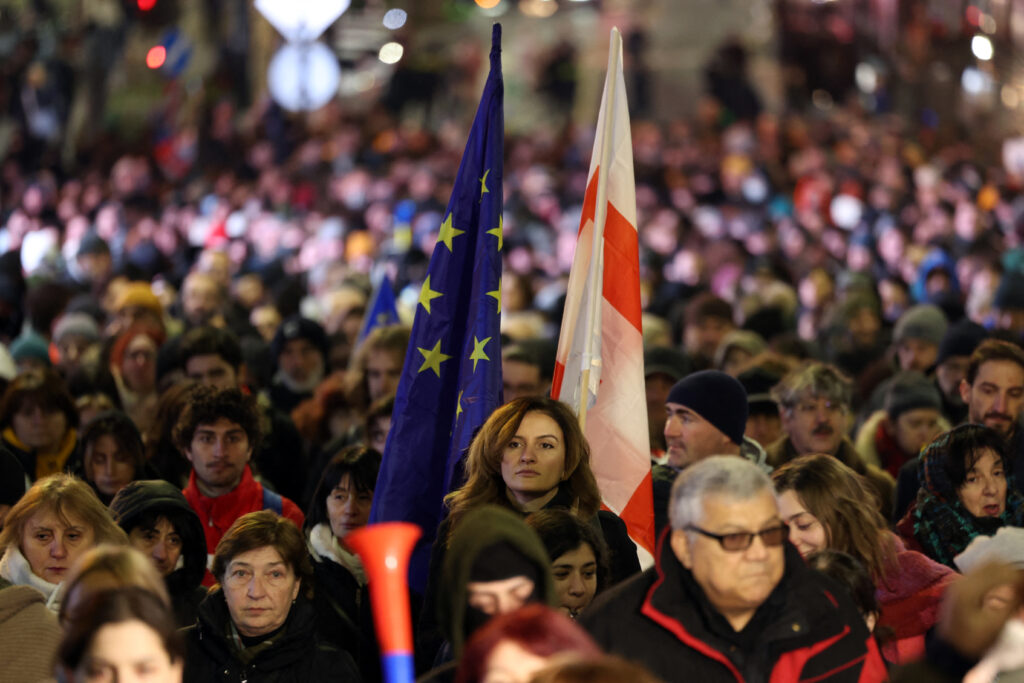Tbilisi, Georgia: Pro-European demonstrators in Georgia continue to take to the streets a year after the government suspended the country’s EU accession process, defying arrests, fines, and restrictive laws.
Tens of thousands of Georgians first poured onto Tbilisi’s streets on 28 November 2024, after Prime Minister Irakli Kobakhidze announced a four-year halt on EU membership moves. Since then, nightly protests have persisted, with demonstrators adapting to heavy police crackdowns and new laws that criminalize blocking roads, now punishable by up to 14 days’ imprisonment for first-time offenders, and up to a year for repeat offences.
“I’m standing for the future of this country,” said Giorgi Arabuli, a regular participant. “I’ve seen the dark times after the civil war in the 1990s, much of it caused by Russian influence. We don’t want to go back there.”
The protests have been met with increasing repression: dozens of demonstrators have been jailed, hundreds fined, and several opposition leaders—including Zura Japaridze—face charges carrying up to 15 years in prison for allegedly aiding foreign powers. Many opposition figures are in solitary confinement, with restricted access to family and legal counsel.
Protesters accuse the Georgian Dream government, in power since 2012, of dismantling democratic norms, enacting anti-civil society laws, and promoting pro-Russian policies. Critics point to billionaire founder Bidzina Ivanishvili’s business ties in Russia and the government’s refusal to sanction Moscow over Ukraine as signs of Russian influence.
Meanwhile, the EU’s annual enlargement report criticized Georgia’s progress, warning that the country is now an EU candidate “in name only”. EU officials have expressed skepticism about Georgia meeting its previous pledge to achieve membership by 2030.
Government leaders, however, have rejected allegations of pro-Russian bias, insisting that their approach is pragmatic and aims to maintain peace with Russia. Prime Minister Kobakhidze recently said the administration is acting in the interest of Georgian society.
Amid the political struggle, prominent journalist Mzia Amaglobeli, imprisoned for protesting police violence, continues to highlight human rights concerns from her cell. She has lost sight in one eye and faces deteriorating vision, but urges the international community to support Georgia’s democratic aspirations.
With opposition parties boycotting parliament and the government passing legislation unopposed, Georgia’s pro-EU movement faces an uphill battle—but the demonstrators remain resolute in demanding a European future.



